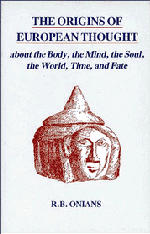Summary
‘WINGED WORDS’
(Addendum to pp. 67 f. (esp. n. 4 on p. 67) and p. 86)
While this is in proof, Professor J. A. K. Thomson (Cl. Quarterly, 1936, I ff.) has explained ἔπεα πτερόεντα as an image of words as arrows feathered and so flying true to their mark, τῇ δʾ ἄπτερος ἔπλετο μũθος as also an image of an arrow unfeathered and so swerving from the mark: ‘the speech…did not lodge itself in her understanding’. But this does not fit the passages in question. The μũθος did reach the mind intended. His interpretation that the hearer did not understand what was said does not fit in with the words missing their mark, unless, indeed, the mark was a different portion of the mind or a subsequent event (‘their’ being understood). Nor do the contexts (Od. XVII, 45–60, XIX, 15–32, XXI, 380–7, XXII, 394–400) admit even this. In each case the speaker achieves his object and is understood. If there was an element in the general situation which the hearer did not understand, the speaker, it is clear, did not aim his words to enlighten her upon that. If, however, ἔπεα πτερόεντα προσηύδα, etc. referred to the words or thoughts flying rapidly as little winged creatures across to the hearer (see p. 67), τῇ δʾ ἄπτερος ἔπλετο μũθος will mean that the thought (so μũθος commonly in the Odyssey; cf. pp. 13 f. and 67 f. above) did not fly but remained still in the hearer. This does fit the contexts The hearer understands and does not answer but quietly acts as bidden.
- Type
- Chapter
- Information
- The Origins of European ThoughtAbout the Body, the Mind, the Soul, the World, Time and Fate, pp. 469 - 550Publisher: Cambridge University PressPrint publication year: 1988



